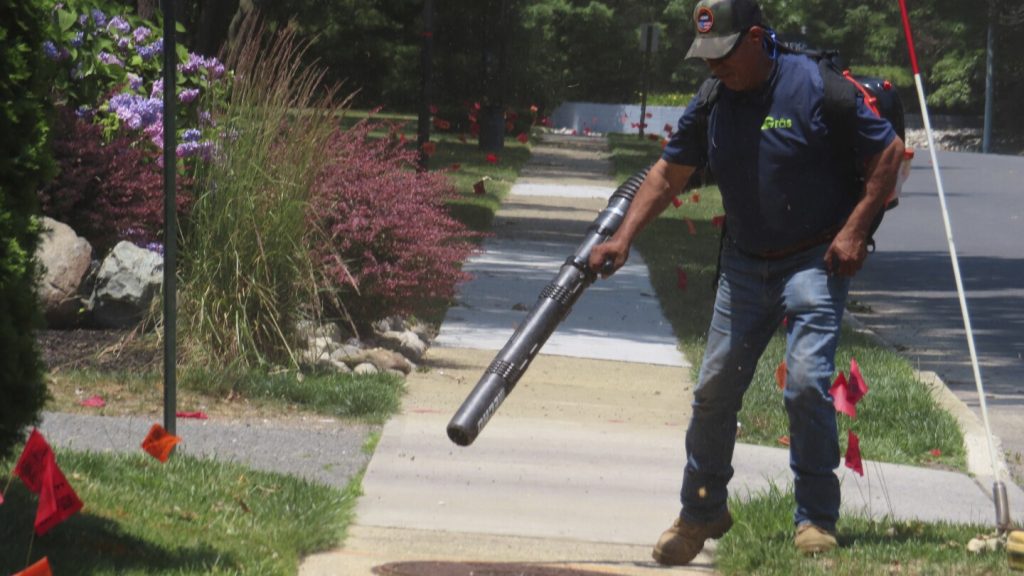The push to ban gas-powered leaf blowers in communities across America is facing opposition from the landscaping industry and some property owners who argue that battery-powered blowers are costlier and less effective. Many cities and states, including New Jersey, have already enacted full or partial bans on gas-powered blowers, citing concerns about noise pollution and environmental impact. In Montclair, New Jersey, a ban on gas-powered leaf blowers took effect last October, resulting in a healthier, cleaner, and quieter community, according to proponents. However, the ban is being challenged in court by landscapers.
New Jersey is considering a statewide ban on gas-powered leaf blowers, with a bill advancing in a state Senate committee that would allow the use of four-stroke combustion engine blowers during peak cleanup periods in spring and fall. This compromise aims to address concerns raised by the landscaping industry about increased costs and decreased performance under the new regulations. Rich Goldstein, president of the New Jersey Landscape Contractors Association, emphasizes the importance of using powerful gas-powered blowers in a state like New Jersey, where significant leaf cleanup is required each fall.
Gas-powered leaf blowers are being targeted by governments across the country, with bans already in place in California, Washington, D.C., Oregon, Maryland, Vermont, and Illinois, among other places. Advocates for banning gas-powered blowers, such as Doug O’Malley of Environment New Jersey, argue that these machines are a major source of pollution, with an hour of leaf blowing producing as much pollution as driving a car for 1,100 miles. While the move towards battery-powered leaf blowers aims to reduce environmental impact, the landscaping industry is concerned about the cost and performance of the new regulations.
In response to the proposed ban on gas-powered leaf blowers in New Jersey, the landscaping industry is raising concerns about the financial implications of transitioning to battery-powered equipment. Rich Goldstein highlights the significant investment in gas-powered blowers that companies have made, questioning the feasibility of simply discarding them. The proposed bill would provide financial assistance to defray the cost of purchasing new battery-powered blowers, but industry representatives emphasize that this is not the only challenge. Retrofitting trucks to charge batteries and the limitations of two-stroke engines compared to more advanced models are also cited as concerns.
Maplewood, New Jersey Mayor Nancy Adams supports the ban on gas-powered leaf blowers in her community, citing the importance of addressing climate change by reducing fossil fuel usage. Adams emphasizes that since the ban took effect, the community has experienced an improvement in quality of life. While several golf course management and landscaping companies support the transition to battery power, they are calling for more time to phase in the change and develop more powerful battery-powered models. The debate over gas-powered vs. battery-powered leaf blowers highlights the broader challenges of balancing environmental concerns with practical and economic considerations in the landscaping industry.


